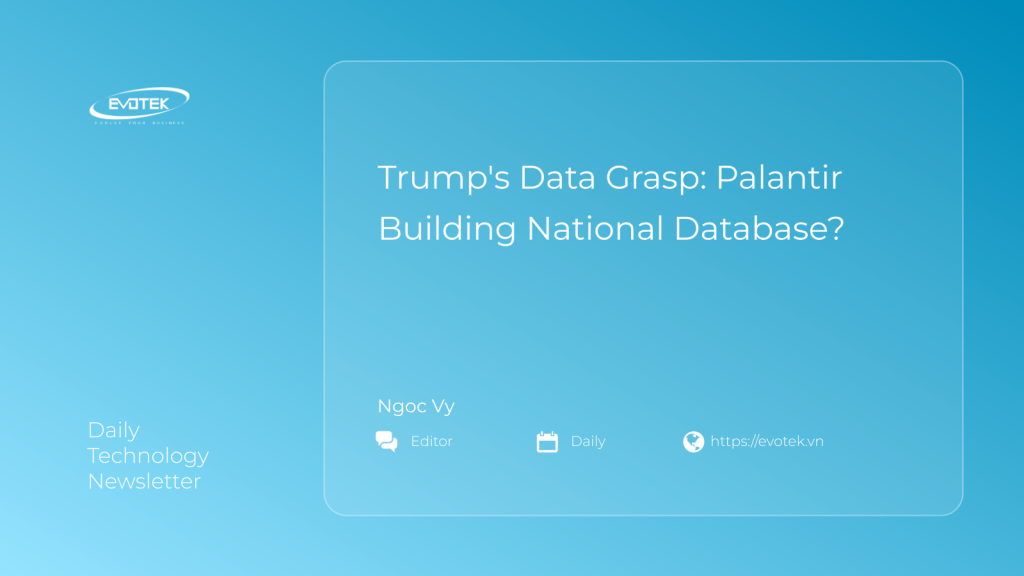Is the Trump administration building a comprehensive database on every American citizen? Reports suggest that Palantir, the data analysis firm founded by Peter Thiel, is playing a central role in this controversial initiative.
Executive Order Sparks Data Sharing Fears
Fueled by a March executive order mandating data sharing among government agencies, fears are growing that the Trump administration is compiling a massive database with unprecedented surveillance capabilities. The administration has remained tight-lipped about these efforts, intensifying public concerns.
Palantir’s Growing Government Footprint
Since Trump took office, Palantir has secured over $113 million in government contracts, including a recent $795 million deal with the Department of Defense. The company’s Foundry tool, which analyzes and organizes data, is reportedly already in use at the DHS, HHS, and other federal agencies, potentially enabling the White House to aggregate vast amounts of information from disparate sources.
Data Collection Under Musk’s Initiative
The data collection push reportedly began under Elon Musk’s Department of Government Efficiency, targeting personal information from agencies like the IRS, SSA, and Medicare. While some efforts have been stymied by court orders, the scope and potential impact remain alarming.
Privacy Concerns and Legal Challenges
Privacy advocates, student unions, and labor organizations have launched lawsuits to halt Trump’s data collection activities. Critics worry that Palantir’s involvement gives a powerful tech company access to sensitive data, potentially enabling the administration to target political opponents and vulnerable populations. Moreover, there are concerns about Elon Musk’s plans to use his AI, Grok, to analyze this government data.
Can Trump and Tech Oligarchs Be Stopped?
The question remains: can legal challenges and public pressure effectively restrain the Trump administration and its tech allies from amassing and wielding this immense data power? The future of American privacy may depend on it.
Sources: The New Republic, The New York Times

 日本語
日本語 한국어
한국어 Tiếng Việt
Tiếng Việt 简体中文
简体中文